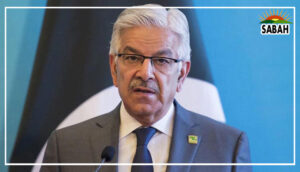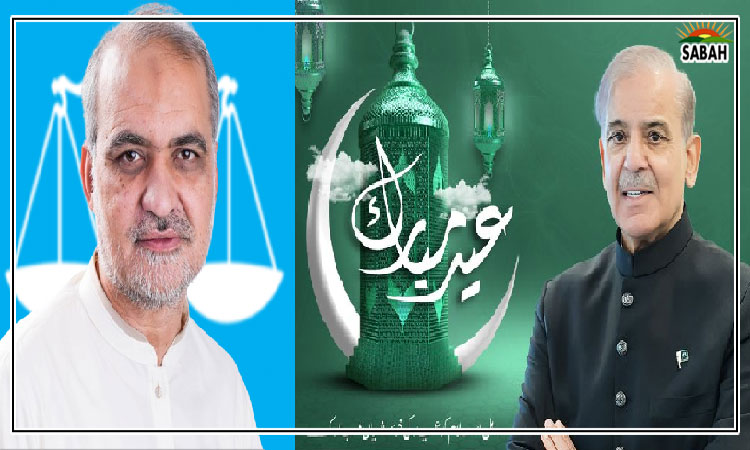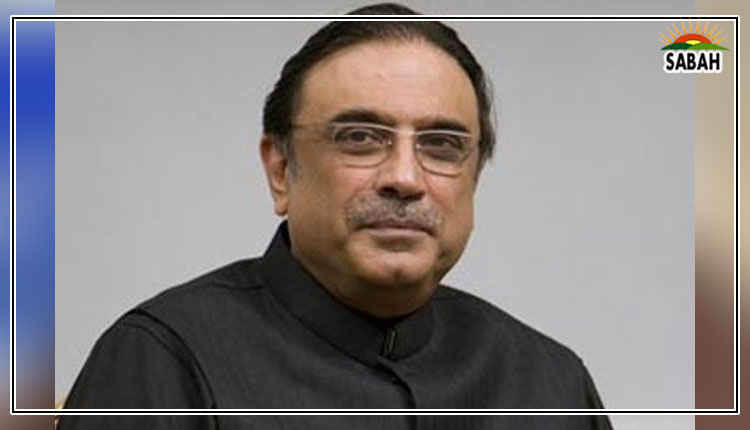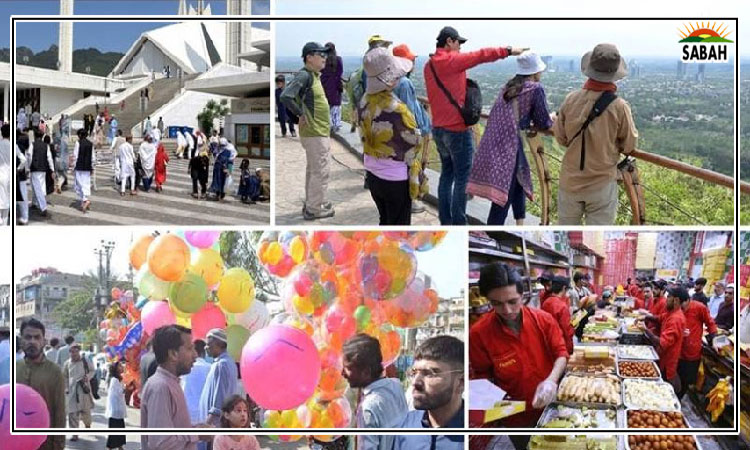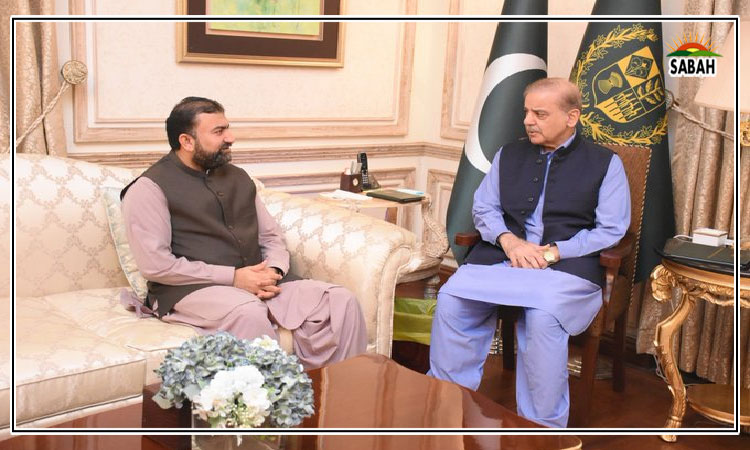Bank of Punjab President Zafar Masud calls for special maritime zones, policy reforms, tax exemptions to boost blue economy
ISLAMABAD, Sep 29, (SABAH): Zafar Masud, the President of Bank of Punjab (BoP), while suggesting tax exemptions and incentives for investors in blue economy, capacity building and skills training on fish preservation of local fishermen, has sought policy reforms for fostering investors’ confidence in blue economy, and development of special maritime industrial zones.
Zafar Masud was speaking at the launch of a report titled: “Pathways to a Sustainable Blue Economy: Role of Financial Institutions” organized jointly by Sustainable Development Policy Institute (SDPI) and Bank of Punjab (BoP) here on Thursday.
In his opening remarks, the BoP President said that blue economy offers poverty-stricken communities livelihood opportunities, yet it remains underexplored by policy makers.
He further said that importance of blue economy is evident from the fact ‘life below water’ has been incorporated in Sustainable Development Goals. ‘Blue economy contributes 0.45% to GDP which is $ 1 billion and 0.2 % of GDP is contributed by marine fisheries which is overexploited,” he said, adding that Pakistan’s maritime sector is confronted with governance issues, poor technology, marine pollution, and destruction of mangroves. He pointed out that $5 billion can be generated annually through coastal and marine tourism.
Dr Abid Qaiyum Suleri, the SDPI Executive Director, said that blue economy has immense untapped potential which requires out-of-box solutions. “Only adding a port without a port city will not add anything substantial to the economy,” he said and suggested that we must focus on rules and policies on trans-shipment and turning our ports into green and completely change the fate of these ports.
He further proposed to develop marine tourism and reduce fossil-fuel based transport through in-land freight by adding sea liners and insurance covers in the sector something India has already achieved.
Rear Admiral Muhammad Ehsan Saeed, Former Chairman of Gwadar Port, said that Karachi and Port Qasim are adequate to meet the future needs for next 25 years. “$500 million of fish exports is sustainable, anything higher for some years can exhaust the marine resources. He suggested developing maritime tourism in Astola to kickstart marine tourism.
Dr Vaqar Ahmed, the SDPI Joint Executive Director, suggested developing online tracker of blue investments for both in pipeline and potential investments, which, he maintained, will help identify opportunities as well as challenges posing hurdles in the growth of blue economy.
Kamran Farooq Ansari, Joint Secretary, Ministry of Maritime Affairs, said that post 18th amendment, maritime functions were dispersed to provinces, causing lack of consensus of policies and initiatives. He said the Ministry of Maritime Affairs is proactively devising policies to promote the sector. Emphasizing on amending the mercantile marine policies, he suggested offering incentives and tax exemptions to attract investment in this sector.
Syed Sayem Ali, the Chief Economist of Bank of Punjab, said that 30% of marine habitat and 44% of costal reefs had been destroyed till 2020. He said 95 % of marine life contains micro plastics, which needs the attention of authorities in the light of SDG 14. He drew the participants’ attention towards global investment trends, saying: “35% of global green investment is in power sector, 29% in transport and 11% in water infrastructure, which are areas Pakistan has not made much strides in.”
Among coastal communities, 79% of populations are classified as the poor while 55% are poorest of the poor, which points lack of inclusivity. He said that models of Kerala and Sri Lanka are benchmarks, and Pakistan must learn from them.
Ashfaq Tola, President of Tola Associates, said that currently there are only 13 vessels, which are inadequate for inland freight water transport. He further said that aqua-culture, marine genetics, sub-marine mining, and tourism are being hindered by poor law and order situation.
Dr Hassan Daud Butt, CEO of KP-Board of Investment and Trade, stressing the need for strengthening blue economy for development said: China is now emphasizing more on maritime silk route than Belt and Road Initiative. He suggested improving status of mangroves and eco-friendly development of ports especially mentioned in CPEC long-term plan.
Dr. Aneel Salman, Head of Department at COMSATs, suggested improving value chain of fisheries to increase revenue generation. He emphasized estimation of gross marine product of Pakistan, including mangroves, fisheries, and direct & indirect revenue for correct policies. He informed the participants that annual budget allocation for blue economy is 0.46% of the GDP, which shows the lack of interest of our policy makers in this sector.
Rahat Jabeen, Senior Environmental Specialist of the World Bank said that blue economy roadmap in collaboration with Ministry of Maritime Affairs is in pipeline.
Dr Shahzad Gill, Department of Public Administration, Islamia University Bahawalpur, suggested developing blue economy curricula at university level to bridge the gap between academia and corporate sector and encouraged corporate sector to invest in R&D facilities in academia.
Ahad Nazir, Head of Centre for Private Sector Engagement, SDPI, highlighted that the four key issues identified in the report, which hinder substantial progress in blue economy are: energy infrastructure undermined by transmission and distribution system, poor water infrastructure, urban development, and waste management. He suggested improving industry-academia linkages to support policies through research.
He also stressed the need for long-term and consistent policies along with monitoring and evaluation mechanism, besides making inclusive and holistic contributions from all the stakeholders especially the local communities.



